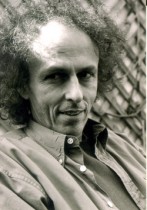Wir freuen uns, Ihnen wöchentlich Christopher G. Moores
 Views from Bangkok
Views from Bangkok
präsentieren zu dürfen. Moore hat wegen seiner großartigen Vincent-Calvino-Romane, die seinerzeit bei metro erschienen waren, in Deutschland immer noch eine große Fangemeinde, die mit neuem Stoff zu versorgen, uns Ehrensache ist.
Heute beschäftigt sich Christopher G. Moore mit Wahlkampf, Lügen und Kriminalität. Themen, die uns so unbekannt nicht sein sollten!
CRIME STATISTICS AND OTHER ELECTION CAMPAIGN LIES
An election must be close in Thailand.
The Thai government recently announced plans to reduce crime by 20%. As an election will be called this year, an anti-crime campaign is popular. Voters like the idea of the government cracking down on criminals. No one has thought to ask how those in government arrived at 20% as opposed to 17.5% or 22.3%. Maybe they just like nice round numbers. A fortune-teller’s consultation might be another possibility as numbers are often selected in this fashion for the lottery. And when anyone talks about reducing crime, they are in the same realm as predicting the winning lottery number.

John Allen Paulos
My friend, math savant, Professor John Paulos might occur that the obvious conclusion is that the general public suffers from Innumeracy. In a nutshell, governments can make such promises knowing that mathematical Illiteracy is the norm. Professor Paulos’ book Innumeracy: Mathematical Illiteracy and Its Consequences on the subject should be required reading.
It is like promising to reduce government waste by 20% or the number of road deaths over the New Year holiday by 5%, it gives the appearance that the government is doing something. It has a goal, a projection against which citizens can judge the effectiveness of government policy. In theory, that is. How many people are asking why the government missed the 5% reduction in people killed over the 7-day New Year holiday period. That’s yesterday’s news. People have forgotten by the third day into the New Year. The government can move on and choose new targets in the confidence that like road deaths, no one is likely to come back and ask for evidence of the 20% reduction in crime.
Let’s assume for a moment, the government wants to turn over a new leaf and is serious about reducing crime. There are some questions already being raised about the government’s plan. When the policy was first announced, people were under the impression that it was to be nationwide. Then the backpedaling started. Apparently it was revised to apply to crime in Bangkok, and a senior cop has gone on record as saying, no, what the colonel really meant was not all of Bangkok subject to a 20% haircut, just certain sectors in Bangkok. There is a little vagueness about where the sectors are located. It might finally come down to a 7/11 store parking lot. And talking about things left unsaid, high on the list is exactly how are the government is going to go about hitting the 20% reduction? But there is one idea.
Think high-tech.
Think CCTV cameras.
That’s right putting up cameras is the bright idea that will reduce crime by 20%. No one has any evidence that positioning cameras in any city in any country has made any sizeable dent in the crime rate. As far as I can tell, no other country has announced their cameras have reduced crime by 20%. Could this be part of the warranty that comes with all of those new cameras? Hopefully, the new CCTV cameras are coming from a different source than the GT200—the hand held bomb detecting devices that had a form of technology that didn’t seem to lend itself to finding bombs. A minor problem, as they say.
Rather than trying to reduce crime, the government ought to try to get a handle on procurement and that might translate into a 20% reduction in spending, which could be used to fund education, training and job creation; and those things might actually work to reduce crime.
Of course, you need a base line and the cops have suggested a rolling three-year criminal statistical rate to judge whether the 20% reduction has been achieved. It is likely that in a month or two this pledge about crime reduction will be forgotten. But let’s pretend, just for a moment, that this is a serious, long-term goal. Other than cameras, what other measures will the government take to reduce crime rates? And how will the police and other officials respond to such a government program?
The authors on International Crime Authors Reality Check write fiction where crime is a central feature of the story. Crime, in a manner of speaking, is our bread and butter. We have something at stake here. Our stories can be harrowing, dark, moody contemplations of modernity or comedy capers with smart people, a couple of ghosts, or wise-cracking private eye hell bent on justice for a nobody squeezed by powerful forces.
In my Vincent Calvino series, I often draw upon actual crimes that occur in Thailand; and there is no shortage of nasty, vicious, senseless, stupid and arrogant criminals to choose from. The best of crime fiction takes the reader beneath the skin, explores the psychology, motivation and gives context and perspective. A tall order. One that authors always aim to achieve but often falls short.
The short-list of best crimes in any given year would keep a hundred crime novelists in Thailand busy year after year. In other words, the imagination isn’t needed to ‘invent’ a crime worthy of a work of fiction, the creative part is to select the best from a long, varied and bloody list where the criminals actors deliver outstanding performances.
We share that distinction with a lot of other people: cops, prison guards, probation officers, prosecutors, judges, etc. Crime is an industry. In the United States this has been privatized. Jails and prisons have entered the capitalist maul like a salmon into the waiting jaws of a grizzly. It is no surprise there is profit in crime and it isn’t only the criminals who’ve figured this out.
For the government, taking a year or more to get behind the life of the person involved in crime isn’t tall order; it’s an impossibility, a bridge inside a dungeon too far. Instead when millions of people decide on a course of action that is criminalized, then the default is for the government to use suppression, surveillance, informers, and force as the basic day-to-day mechanism for containing criminal activity. Most of this doesn’t work to stop, contain, reduce or otherwise shrink, the ranks of criminals.
In fact, this likely has just the opposite effect. The high-tech stuff means more people are caught breaking the law, more people are put in prison, and as the high-tech precision increases, this is one of the true growth industries in the world. Crime can remain the same but detection can become more effective, meaning more people are processed as criminals.
No doubt the day will come when the private vested interest will lobby against bills that reduce crime. Without a steady stream of ‘criminals’ the bottom line of an entire industry would be at risk. Arguments will be made that government has no business in wasting money on stopping criminals.
Some candidate will surely argue that the government should simply let the free market intervene and before you know criminals subject to the bean counters who count the number of beans on each prisoner’s lunch plate (cutting out lunch is always a popular option with shareholders) will soon need a new set of thin man/woman clothes. Never mind, convicts upon their release will see the light and foreswear a life of crime.
Want to reduce crime 20%? A country will do well to repeal the laws against possession of pot, prostitution or gambling. You might get way past 20% but that approach would rob the criminal justice, public and private, that feeds on crime increasing to maintain their budgets, profits and status.
When the time comes to stamp out crime, no crime writer has to worry that his or her world will collapse. Remember what a top cop in Bangkok said, “It’s impossible.” There’s comfort in knowing, as a crime writer, that the authorities will promise crime reduction because it is a voter getter, and will pass even more laws to criminalize behavior, employ more high-tech gadgets to catch law breakers, and the über-rich can rest in peace in their beds that their high walls, security systems and guards are really a fancy prison but the kind of paradise that free markets bring in a game where the winner takes all the loser goes to jail.
The Thai government can always send a study team to Nepal and Timor to find out the secret of why their prison populations are so small compared to other countries. Government officials like such trips (though Nepal and Timor-Leste may not be so prized destinations). Next week I will blog about imprisonment rates in those countries and neighboring countries.
Meanwhile, we can wait and see how Bangkok’s crime rate will change over the next year. I wouldn’t bother checking back with the government, though. By January 2012 everyone will be too worried about the Maya prediction that world will end to care much about reduction of crime. It might become every man, woman and child for themselves as with the world ending we finally understand the criminal mind lurks inside all of us when we have absolutely nothing to lose.
Christopher C. Moore
Christopher G. Moores Website
His lastest Vincent Calvino novel, 12th in the series, is titled 9 Gold Bullets and is available as an ebook on Kindle.
Die Vincent Calvino-Romane
Dieser Text ist vor genau 24 Stunden auch auf unserer Partnerseite erschienen.
Mehr zu Christopher G. Moore hier











